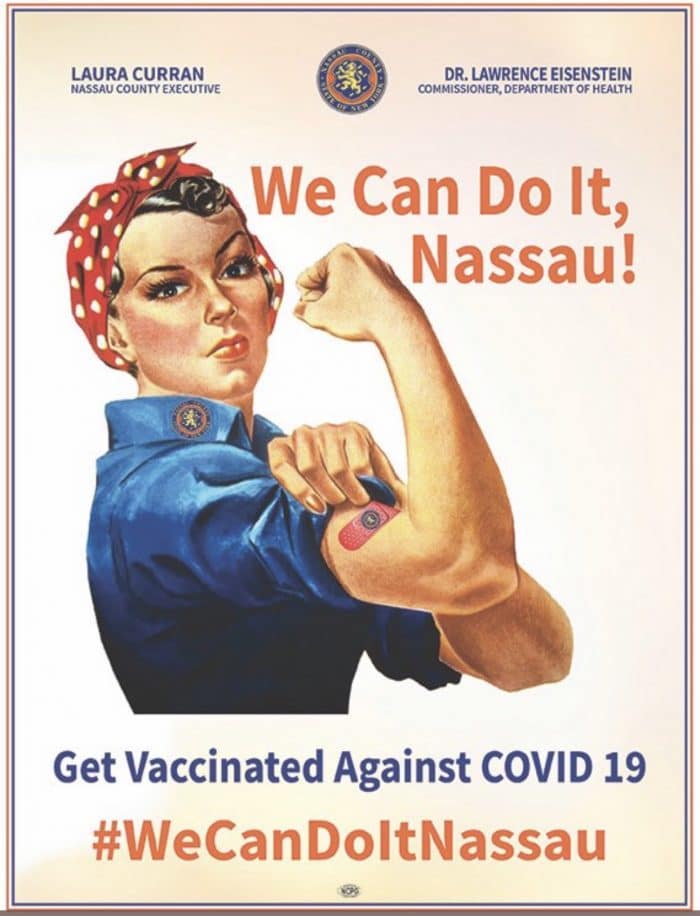Although I am happily married baruch Hashem, over the course of a few years, I have had many gripes with the shidduch system. I see many of my single friends from high school struggle to get married. These are beautiful, smart, fantastic young women. I do not understand why they are still single. Then I see the “mean girls” from my grade. The ones with all the money, yechus, the perfect families, and the connections all get married bright-eyed and bushytailed fresh out of seminary. These were girls whom I remember distinctly leaving me and my group of friends out of productions because we were not in their chevrah. One friend in particular who had a gorgeous voice was rejected from choir when the rest of the choir consisted of the same close-knit group of friends. These were the girls who got us in trouble for things we did not do and held a very holier-than-thou attitude. These were the girls who made fun of us that we did not get into the most sought-after seminaries.
I cannot for the life of me figure out why my amazing friends are struggling so hard to find the right one when these mean girls had all the luck. Is this just how things were ordained? Or is there a flaw in our system which rewards quantity over quality?
I would love the panel’s feedback on this.
–Esther
The Panel
The Rebbetzin
Esther, I am glad that you opened with appreciation for your own healthy marriage and situation. That is a mark of maturity.
Many in our community blame “the system” for many things. A lot of generalities about the frum system are bandied about in conversation, in the press, and sometimes in the classroom. Presentation in the community, connections, images, pressure not to be unmarried, money, hashkafic norms, trappings of an easy life, being born into an unconventional family, and many other things can be blamed for what seem to be unfair advantages and disadvantages that may work for or against a young person seeking to get married.
There is a lot of conversation and, more importantly, work that has been done to rectify/assist people in finding their partners – new forms of shidduch groups, meetups, advisement, relationship coaching, and marriage enrichment. There are also shidduch groups for specific populations as well as ages. Our community takes responsibility and a lot of discussion in the press has improved awareness of some of our internal issues connected to shidduchim.
Nonetheless, we only see one side of things in our human condition. We are not G-d; we don’t know everything about everyone else and cannot see the plan behind the picture we observe externally. We don’t know what life will bring us nor the members of our circle. Some will be ill; some will have children with severe disabilities; some will lose their fortune; some will sustain abuse. The same is true of the present; we see only one side of the picture.
If some things from high school are still bothering you – and apparently, they are, –get some help and talk it through. Understand yourself. You will be happier once you get rid of the emotional baggage you may be carrying. We all carry “stuff” from our early lives into our adulthood. Dealing with it early on in our adult lives makes us more resilient and capable of healthy responses when challenges will hit. And they will. No one is exempt from challenges in their adult life.
One of the blessings of midlife as we frequently discuss in our JWOW! (Jewish Women of Wisdom) forums is having a live and let live attitude. We have gone through trials and tribulations and can “fargin” others and ourselves the good things in life. We have seen ups and downs and often we directly observed much later on the plan Hashem had in mind which at the time seemed inexplicable. We can grow, we can pray, and we can hope but life may not be fair, now or later. Only Hashem has the full view of the circumstances.
The Shadchan
Thank you for this thoughtful and sensitive question. It is admirable how deeply you feel for others. It seems as though you have gone through a lot together as a cohesive group of friends, and you are eager to see them married off as well. This must be hard. Although it may seem as though the rich and famous get it all, that can’t be further from the truth. I understand why you feel this way, after having watched the mean girls get married STAT, but the answer is purely coincidental. They happened to have gotten married right away – but does this mean they are truly happier? If there is any truth to your theory, aren’t you glad that your friends have not been dragged into that? For instance, if a man is mainly marrying a woman because she is rich, went to the top schools, and has the most affluent family, completely disregarding her middos and inner qualities, how good of a marriage do you think this couple will actually have? Would you wish that kind of life on your incredible friends, to be with someone so shallow?
The dating process is humbling, difficult, and sometimes utterly painful. But just like anything in life, the more effort you put into something, the more you get out of it, the more you appreciate it. Your friends will grow through this experience until they find the one, while enjoying the ride in the meantime.
Remember that Hashem is in control here. There is no yechus, no money, and no societal ranking that can stop your friends basherts from arriving just at the right time.
Additionally, I think it is time to set aside your gripes with these girls from the past and focus on the here and now. You seem to hold onto a lot of resentment. Work on letting it go; do not let it take up anymore of your brain-space. Use the extra brain-space to work on shidduch ideas for your friends.
May you all share in each other’s simchas very soon!
The Zaidy
Dr. Jeffrey Galler
Why, oh why, do the righteous suffer while the evil seem to prosper?
OK, Esther, I get it. This conundrum has confounded religious philosophers for millennia, but it still does not make you feel any better.
Let me try to make you feel a little bit better and a lot less bitter. Remember all the snobby, cliquey, mean kids in high school? I will tell you a secret: they weren’t so very happy then, and they are not so very happy now.
Many years ago, one of my patients was a beautiful, former high school classmate, who was a charter member of the “in” crowd of popular students. I always imagined that she must have experienced a wonderful, enjoyable high school career.
Imagine my surprise, when we were discussing our upcoming high school reunion. “I really don’t want to go,” she confided, “because I hated high school, and everyone hated me!”
My reaction was a silent, unexpressed, “What?! I can’t believe she just said that!”
The truth is that “mean” adolescents (and adults) are very insecure people. They worry that their fabulousness is attributable to their looks, their clothing, or their family wealth, and that those transient aspects may not last forever.
They are actually jealous of those with intelligence, with character, and with the feelings of self-worth that result from hard work, diligence, and personal growth. Their “bullying” bad behavior is an expression of envy toward those who have qualities that they lack.
So, do not be jealous of, or bitter toward, those who are very impressed with themselves and their own awesomeness.
Think of an impressionistic painting by Monet. Viewed at a distance it looks awesome; viewed up close it’s a real mess.
By contrast, genuine, sensitive, caring, and intelligent individuals like you and your friends will be just fine. I have no doubt that your friends will find stable, genuine husbands and enjoy many years of true, fulfilling happiness.
The Kallah Teacher
Rebbetzin Lisa Babich
Thank you for your question. I want to answer you by addressing a few points. The first and foremost premise of this conversation is that in life we never know exactly why things happen. Hashem’s ways are complex, and He has so many cheshbonos (calculations) when He does something. It is hard to ever answer, “Why did this one get a bracha and not that one?”
The second point I would like to make is that while there are many flaws to the shidduch system, I don’t know if the “mean/privileged” girls getting married first and the “nice/ordinary” girls getting married later is one of them. I personally know so many “nice but average yechus” girls who got married very young and “mean, snobbier” girls who married later. I just don’t think there is one generalization when it comes to this particular point.
But even with that being said, the main point that struck me when reading your question is the idea that we are assuming that marriage is the end game. The assumption is that once someone gets married, they have made it in life while the single friend did not quite get there yet. This simply is not true. Our life is ultimately about quality and growth. The mean-spirited girl may have gotten married at 19 and her poor middos may have contributed to a horrible marriage or shalom bayis issues with children. The single girl may get married ten years later and end up having the most beautiful, loving, healthy family life.
The inherent flaw in the question you ask is that it is too narrow. There is a big picture in life and just because some of these girls wed early does not mean they “won” or that they got the reward while the other girls didn’t.
Life is long (with Hashem’s help) and the winner is the one who has the successful, worked-through and happy life, not necessarily the one who made it to the chuppah first in the grade. Your friends may not be married yet, but when they do find Mr. Right I am sure that their fine middos, which you so beautifully described, will contribute to them having the ultimate prize: a happy and stable family life.
Putting it All Together
Dear Esther,
Thank you for writing in! You are lovely. Taking your time to express your feelings on behalf of your friends whom you feel may be treated unjustly is very telling of your character. The world needs more people like you in it.
I may be a psychotherapist in private practice, but first and foremost I am a social worker. I don’t like social injustice. I don’t like to see groups of people being treated unfairly for circumstances beyond their control. I feel you. I’ve seen countless women in my practice scratching their heads, wondering why they aren’t being set up. Beautiful, successful, funny, intelligent women who would make any man’s head spin with happiness and fulfillment. Of course, I see the disparity and injustice. People not being given a chance because of status –financial, yechus, divorced parents, out-of-the-box, or otherwise. I don’t like it either.
A word about the “mean girls.” Imagine for a moment being in a group of friends where your friendship is based on status. Imagine the discomfort these mean girls feel knowing they can lose their spot in the group. Not only are there mean girls, there are “mean women” too. Fortunately, many people outgrow their mean girl ways…but many do not. They gossip about each other and if any of the friends stop following the “norm” due to choice or a situation beyond their control, they are out. I actually cannot imagine being a part of something like that. I am sad for these girls and women. They constantly feel insecure in their relationships. I can’t breathe around that.
And so, you’re noticing these “mean girls” getting married before your “nice girl” girlfriends. I must say that I do not always see this as the case. I’ve seen plenty of nice girls get married very young, before their “mean girl” counterparts. G-d willing, your friends will find their basherts in their right time.
Experience (aka many mistakes) has taught me that thinking about the “mean girls” and how “unfair” this seems and feels will not help you. It is a poor investment of your time, and it will not yield any positive return. It will only anger you. If that anger is used to help your friends find their husbands, it can be productive. Mentally wish these mean girls well and put this to bed. There is a lot of injustice in this world. We see evil people in positions of power, cruel people with lots of money and kind people with nothing. There is so much pain in this world! An inordinate amount of pain! Which is why it is so much healthier to focus on all the good in our lives. Pain can destroy us; leaving us as former shells of ourselves…or it can be transformative. It can make us more empathic (as you clearly are), it can help us see our lives clearly and it can be an invitation for gratitude and appreciation. Our pain can serve as a tikkun. There is so much Jewish and secular literature written about life’s pains and how to contextualize it. One oldie but goodie is The Garden of Emunah which I sometimes turn to in my time of pain.
I wish no pain on anyone ever and that no one has to learn from devastating or tragic life events or hardship. But most of us have, will, or are learning right now.
If you see a flaw in the shidduch system, is there an actionable measure you can take right now to help right the wrong? Many a shadchan began their journeys seeing similar struggles within the system and wanting to help. Is there a phone call to be made?
I believe in my heart that there is one special person out there for each of your special friends. They will, G-d willing, be part of families who value them for who they are based on their merits, characters and accomplishments. For the time being, you can keep on being the incredible friend that you are. You can daven. You can be a rock and a cheerleader and a shoulder to cry on. For what it’s worth, I have noticed that the people for whom it takes a little longer are often that much more appreciative and grateful of their spouses and marriages. And Esther, maybe this column, completely prompted by YOU, will be read by someone (or many people) who will want to be part of the change in some way, shape, or form.
Sincerely,
Jennifer
Categorised in: Dating Dialogue














